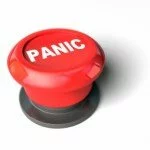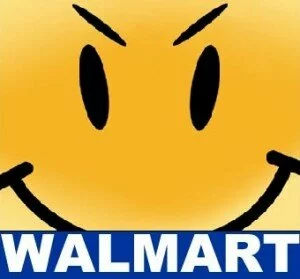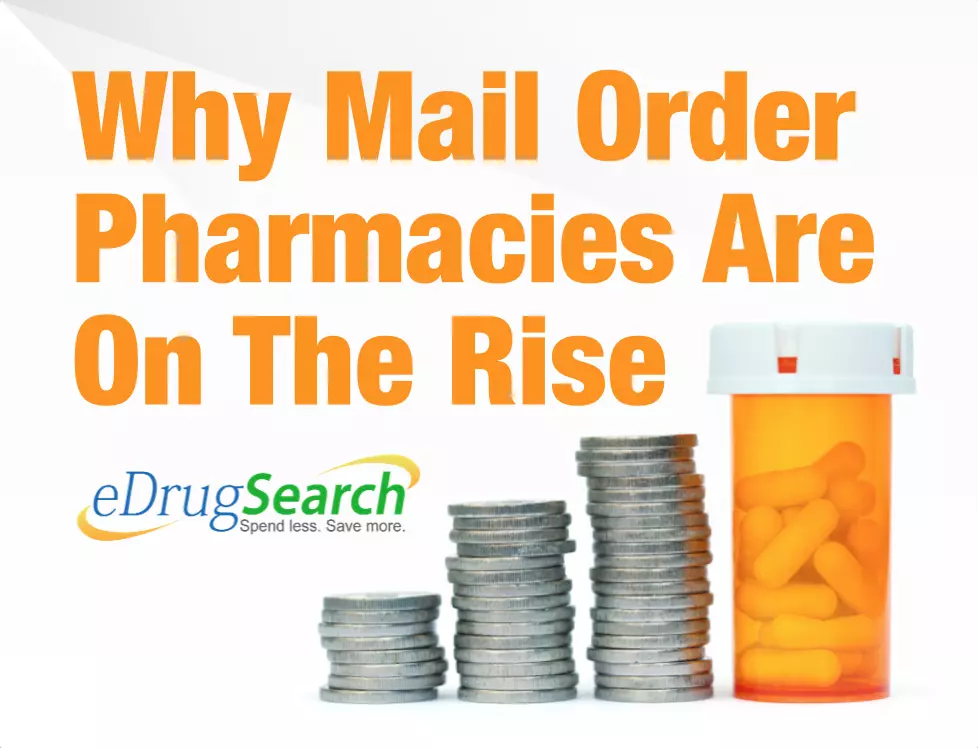Why Mail Order Pharmacies Are On The Rise
With the abundance of online and mail-in pharmacies in the marketplace today, many people are considering whether it’s a good idea to switch out of their traditional pharmacy routine. Online pharmacies can present several benefits for users, and this article addresses some of the biggest questions and concerns that users have when making this transition.
Are Mail Order Pharmacies a Good Idea?
A mail order pharmacy is a perfectly good substitute for an in person pharmacy, and it has some benefits over other types of pharmacies. They can certainly save time, as trips to the pharmacy are not needed. Individuals can set up a routine, where payments are processed and medications sent at the same time each month. Because they are so convenient, many people are choosing to move to mail-in or online pharmacies.
Are Mail Order Pharmacies Safer than Walk-Ins?
Many patients have their qualms about mail order pharmacies for safety reasons. However, mail order pharmacies are very safe. Since most of the work is computerized, there is little room for human error in processing the subscriptions. When the prescriptions are sent, care is taken to protect the medications from sunlight and exposure to the elements that may occur during shipping. Also, most mail-in and online mail order pharmacies have excellent customer service networks and emergency procedures to make sure that users of the programs don’t experience any problems.
There is scientific research to support the use of mail order pharmacies and their safety. A group of doctors conducted a thorough study of the use of mail order pharmacies for patients with diabetes. They found that the use of mail order pharmacies instead of walk-in pharmacies may actually prevent more negative health outcomes. For more information about this study, read the full article here: http://www.ajmc.com/publications/issue/2013/2013-1-vol19-n11/Safety-and-Effectiveness-of-Mail-Order-Pharmacy-Use-in-Diabetes
Are Online Pharmacies a Good Idea?
Online mail order pharmacies are a great way to maximize time without compromising the accuracy of a prescription’s delivery. Online pharmacies stock the same high quality and safe prescriptions that are available at in person locations. Patrons of these online mail order pharmacies have the added benefit of saving time to get their prescriptions.
Online pharmacies are safe for patients to use. The operations of these facilities are overseen by registered pharmacists, and the medications dispensed are approved by the FDA and rigorously tested before being dispensed. Users in doubt can check out an online pharmacy’s accreditations and affiliations in order to gain a sense of how reputable the company is. Reviews from current patients can also be a beacon of trust that lets patients know they are in good hands. When chosen well, a mail-in or online pharmacy can be an excellent and safe decision that can save a patient time and money.
About this Angie’s List Expert: Cary Byrd is the president and founder of eDrugSearch.com. Based in San Antonio, eDrugSearch.com is a free cost comparison engine that helps consumers get safe access to affordable medications and advocates licensed online pharmacies as a widely accepted alternative.
 As mail order shows signs of becoming the dominant distribution system for prescription drugs in the United States, independent retail pharmacists are shaking in their boots.
As mail order shows signs of becoming the dominant distribution system for prescription drugs in the United States, independent retail pharmacists are shaking in their boots.
So much so that they are turning to Washington for a bailout — or at least for a sympathetic ear.
As Drug Topics reports:
The fundamental message of the 2009 National Community Pharmacists Association’s Annual Conference on National Legislation & Government Affairs is “get into politics or get out of pharmacy”. Putting these words into action, on May 13 pharmacists attending the NCPA conference will take to Capitol Hill to meet with legislators. Their goal is to make sure lawmakers understand what they do and how they serve patients…
Congressman Steny Hoyer (D-MD) responded to concerns about the common misconception that mail-order prescriptions are less expensive than pharmacies. The speakers promised to continue to support pharmacy interests, including issues connected with pharmacy benefit managers…
The NCPA is not a small organization. Founded in 1898, it represents more than 24,000 pharmacies, more than 68,000 pharmacists and more than 280,000 employees. The nation’s independent pharmacies, independent pharmacy franchises and independent chains dispense nearly half of the nation’s retail prescription medicines.
But this is a fight it simply can’t win.
No matter how many independent pharmacists march on Washington, the fact remains that the traditional business model for dispensing medications is collapsing around them. On the one side, they must try to compete with mega-retailers like Wal-Mart. And on the other side is the even bigger elephant in the room: mail-order pharmacies.
People want the convenience and lower prices that they get from mail-order, whether ordering through their insurance provider or an online pharmacy.
Fighting to retain the old way of doing things is a losing battle. It would be more productive to find a way to participate in the emerging distribution system — and in fact, it’s really their only choice over the long term.

We speculated last week that the big health insurance companies and their PBMs (pharmacy benefit managers) may soon attempt to force employees toward mail-order drugs. It’s certainly a real possibility after the PBM Express Scripts began providing mail-order delivery as a default option for employer-based health plans.
As I predicted then:
1. Soon, all other PBMs will offer the same program.
2. Then, one PBM will come up with a program that makes participation in the mail-order program mandatory in order for employees to receive coverage — in the name of employer cost savings.
3. That will become the dominant model for employer-based prescription drug insurance.
I then added, forebodingly:
Now, I haven’t factored in the uproar that this would cause with the Wal-Marts, Rite Aids and the like…
Well, you can forget Rite Aid, because they’re going to go out of business anyway. But Wal-Mart, that’s another story. You could bet they weren’t going to take this sitting down.
So how to fight the PBMs? How about by bypassing the health insurance companies altogether and taking your pitch straight to employers?
As Kaiser posted today:
Wal-Mart on Friday announced that it is in negotiations to expand to several other companies a generic drug purchasing pilot program it currently runs with Caterpillar…
Under the pilot program, Wal-Mart waives the $5 copayment for generic drugs for Caterpillar employees when they purchase their medication at Wal-Mart or Sam’s Club pharmacies. According to the [Chicago] Tribune, the incentive to fill prescriptions at Wal-Mart or Sam’s Club pharmacies boosts Wal-Mart’s pharmacy business and pushes more potential customers into their retail stores, where they might purchase other items.
According to the Tribune, the “most radical aspect of the test … is the threat of unraveling how the health care industry buys and sells prescription drugs.” As part of the program, Caterpillar has a contract to purchase drugs for employees directly from Wal-Mart, bypassing the need for a pharmacy benefits manager…
Walgreens, meanwhile, has announced that it is pursuing a strategy similar to Wal-Mart’s.
This is beautiful, folks. It almost certainly means that the costs of generic drugs will continue to fall in the United States, which is great news. And perhaps the competition between retail pharmacies and PBMs will squeeze some of the inefficiencies out of the current system, reducing administrative costs as well.
Unfortunately, this battle can do little to reduce the prices of brand-name prescriptions, which are the real reason Americans can’t afford to pay their drug bills anymore. Just as drugmakers can dictate their monopoly pricing to the consumer, they can also dictate it to the middlemen.
Still, Wal-Mart vs the PBMs will be fun to watch.

We wrote recently about the rapidly growing business of mail-order pharmacies run by the pharmacy benefit managers (PBM) who work with employer-based insurance providers.
It’s been a trend with no small hint of irony. You see, when Canadian mail-order pharmacies came on the scene in the 90s, representatives of Big Insurance and Big Pharma trashed the whole idea of the mail-order pharmacy. They said it was unwise — even dangerous — to order drugs without having face-to-face contact with your pharmacist. They said your relationship with your pharmacist was just as important as the one you have with your doctor.
All that would be lost, they said, if you ordered from an online pharmacy. Of course, now that they’ve figured out how to make a buck off of the idea, they love it.
And now, Big Insurance is moving toward a day when you may actually be forced to order your drugs online or through mail-order — whether you like it or not.
As U.S News reports:
Express Scripts, one of the nation’s largest pharmacy benefit managers, has developed a program [called] Select Home Delivery [that] automatically enrolls employees in the home delivery program unless they specifically opt out of it …
That’s right. If your employer’s PBM is Express Scripts, and they sign up for Select Home Delivery, mail-order will be the default option for all employees.
Mark my words here; this is the first of several shoes to drop. Up next:
- Soon, all other PBMs will offer the same program.
- Then, one PBM will come up with a program that makes participation in the mail-order program mandatory in order for employees to receive coverage — in the name of employer cost savings.
- That will become the dominant model for employer-based prescription drug insurance.
Now, I haven’t factored in the uproar that this would cause with the Wal-Marts, Rite Aids and the like. Some kind of accommodation will probably have to be reached to make all the big-money players happy.
And of course, consumers won’t like it, because no one likes having their choices taken away. But how much power do consumers have these days in the face of Big Insurance and Big Pharma, anyway?
When you listen to Express Scripts tout the benefits of Select Home Delivery, you know it’s only the beginning:
“Moving from retail to home delivery may be the most powerful intervention we have today to improve therapy adherence,” says Bob Nease, chief scientist for Express Scripts, referring to patients who follow their prescribed drug regimens. Home delivery also saves patients money, typically up to a third of the prescription cost for a 90-day supply.
So far, about two dozen companies have signed up for the Select Home Delivery program. Home improvement retailer Lowe’s has seen the percentage of prescriptions filled through home delivery rise from about 14 percent to 40 percent since the company signed on, says Nease.
As you know, we at eDrugSearch.com are big fans of online and mail-order pharmacies. We were fans of mail-order pharmacies long before the insurance companies.
We know that mail-order pharmacies save healthcare consumers money. And we’re glad that millions of consumers will learn through programs like Select Home Delivery that they need not be scared of ordering drugs through the mail.
That will be especially important should these workers lose their jobs or prescription drug coverage — and realize they can pay up to 80 percent less on their medications by ordering through eDrugSearch.com’s network of licensed mail-order pharmacies.
All that being said, we continue to find the arrogance and hypocrisy of the big health insurance companies astounding.
 You might find it interesting that — with the economy seemingly crumbling around us — one line of business is doing very well indeed: mail-order pharmacies.
You might find it interesting that — with the economy seemingly crumbling around us — one line of business is doing very well indeed: mail-order pharmacies.
Medco Health Solutions Inc., the nation’s largest pharmacy-benefits manager (PBM), posted a 32 percent rise in fourth-quarter profits today — largely on the growth in the number of prescriptions filled by mail order. Working with employer-based insurance providers, Medco fulfills more mail-order prescriptions than any other company in the United States.
If you have employer-based insurance, it’s likely that your insurance company is now working with a PBM like Medco — and is encouraging you to use them. For the consumer, it can be a good thing — because PBMs have the bargaining power with Big Pharma to bring down your prescription drug prices, and you’re generally not going to see the wide variation in pricing that you do in shopping at your local retail pharmacies.
But as someone who’s observed and participated in the mail-order pharmacy business for some time now, I’ve noticed an irony here.
After Canadian mail-order pharmacies emerged on the scene in the ’90s, representatives of Big Insurance and Big Pharma criticized the whole concept of the online pharmacy.
They said it was dangerous to order drugs without having face-to-face contact with your pharmacist.
They said that a personal relationship with your pharmacist was just as important as with your doctor, and that you should never order drugs by mail.
Now that they’ve co-opted the idea, though, they love it. Absolutely love it.
We’re actually glad people are learning some of the benefits of mail-order pharmacies through their employer-based insurance. Because, God forbid, if they lose their jobs and their COBRA runs out (or they can’t afford their COBRA), they’re going to need another solution.
And saving up to 80 percent off U.S. retail prices through licensed Canadian pharmacies is, hands down, the best solution out there for the uninsured.
-
 Subscribe in a reader
Subscribe in a reader -
Search Blog Posts
-
Ads

-
-
How to Safely Buy Prescription Drugs Online from Cary Byrd on Vimeo.
-
Medi-Share: Christian Health Insurance Alternative

-
Archives
-
Our Healthcare100 Ranking
-
Tags
adverse drug reactions big pharma buy drugs online Canadian drugs canadian pharmacies canadian pharmacy compare drug prices consumer reports divine healing Drug costs Drug interactions Drug Prices drug safety tips drug savings tips dtc advertising eDrugSearch.com FDA healing scriptures Health 2.0 healthcare100 Healthcare blogs high drug costs high drug prices Jehova Rophe Jesus Christ licensed Canadian pharmacies licensed online pharmacies Lipitor mail order pharmacies medicare coverage gap medicare doughnut hole Medi Share miracles online pharmacies online pharmacy safety personal drug importation pharmacy spam prescription drug abuse Prescription drugs reimportation rogue online pharmacies save money on prescriptions The Great Physician The Lord our Healer Wal-Mart $4 generic drug program

